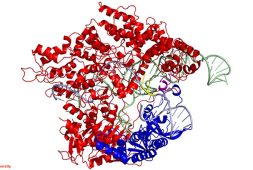Study Discovers Exercise Could Improve Quality Of Life For Women Diagnosed With Metastatic Breast Cancer

A recent research increasingly highlights the benefits of regular exercise in enhancing both physical and mental well-being for women undergoing treatment for breast cancer.
Now, groundbreaking findings from a new study suggest that maintaining a consistent exercise regimen may significantly enhance the quality of life for women battling metastatic breast cancer, the most advanced form of the disease.
Presented at the 2023 San Antonio Breast Cancer Symposium, the study unveiled promising results indicating that a supervised exercise program could alleviate common symptoms associated with metastatic breast cancer and its treatment, including fatigue, nausea, pain, and anxiety.
The study, which involved 357 participants diagnosed with metastatic breast cancer, revealed noteworthy improvements in various aspects of well-being among at least 178 of the participants who engaged in a nine-month exercise program compared to those in the control group.
At the end of the study, the participants shared that they had more energy, less pain, and improved emotional and mental states than the participants that were part of the control group.
A professor at the Julius Center for Health Sciences and Primary Care at the University Medical Center in Utrecht, Netherlands, and study author Anne May, PhD, said, “[During exercise sessions], patients were supervised by a physiotherapist or an exercise professional. Sometimes it was one-to-one supervision, but during most sessions the patients exercised in small groups.”
Throughout the study period, participants’ physical, mental, emotional, and financial quality of life were assessed using questionnaires administered at enrollment, as well as at three, six, and nine months.
Additionally, physical fitness was evaluated through a standardized stationary bike test, gradually increasing resistance until participants reached their limit.
Melanie Crutchfield Whitten, MD, a breast surgical oncologist at Methodist Le Bonheur Healthcare in Memphis, Tennessee, who was not involved in the study says that exercise is often recommended before and after breast cancer surgery.
“Exercising has also been shown to shrink some tumors before the operation,” Dr. Crutchfield Whitten says.
While previous research has highlighted the positive effects of exercise on breast cancer symptoms and treatment side effects, the 2020 study published in Scientific Reports represents a crucial step forward by focusing specifically on symptom management and quality of life for individuals with metastatic breast cancer.
These findings hold significant implications for updating treatment guidelines, offering hope for improved care and support for patients facing this challenging diagnosis.
Although the study has yet to undergo peer review, its findings offer encouraging insights into the potential benefits of exercise for individuals living with metastatic breast cancer.
Just 6 Months of Exercise Showed Higher Quality of Life and Less Pain
After six months, participants in the exercise group reported an enhanced quality of life, characterized by improved social functioning, reduced pain, and better breathing. While some individuals with metastatic breast cancer may experience pain directly from the cancer itself, it is more common for pain to arise following surgery or during other treatment modalities, as noted by Breastcancer.org. Previous research, including a meta-analysis published in 2023, has explored the potential of exercise in managing cancer-related pain, yielded positive outcomes.
While the study authors are still exploring the mechanisms behind these effects, they have proposed several hypotheses. For instance, exercise may alleviate symptoms of fatigue by reducing inflammation in the body, a suggested by a study published in 2020.
Additionally, Dr. May suggests that the improved quality of life reported by participants may be attributed to decreased complaints of fatigue, pain, and dyspnea, coupled with increased physical activity. This, in turn, may afford individuals more time and energy for family and social engagements.
Physical Strength Seen In Those Part of the Exercise Group
According to Breastcancer.org, fatigue and weakness are commonly reported by individuals undergoing breast cancer treatment. However, after just six months, participants in the exercise group demonstrated significant improvement. They were able to achieve a 13 percent higher resistance level on the stationary bike compared to those who did not engage in exercise.
According to the American Heart Association, exercise also increases endurance.
“In addition, exercise can help with fatigue that so many people experience while going through chemotherapy,” says Crutchfield Whitten.
Crutchfield Whitten recommends speaking with your medical team to decide on an exercise plan since everyone has different thresholds for physical activity.
“For my patients who are not actively undergoing treatment, the American Cancer Society recommends 150 minutes of exercise a week, with at least 30 minutes of that being a strength-related exercise. That comes out to about 30 minutes a day, five days a week,” says Crutchfield Whitten.
In a press release, May suggested that the nine-month program might have facilitated the integration of exercise into participants’ daily lives. Following the study, a considerable number of participants continued to maintain their exercise routines.
The Bottom Line: More Research Needed
According to the study findings, May advocates for healthcare providers to incorporate supervised exercise into the treatment plans of patients with metastatic breast cancer.
Additionally, she emphasizes the importance of policymakers and insurance companies ensuring coverage for these treatments under health plans. This study has paved the way for such possibilities, and future research may prompt revisions to metastatic breast cancer care guidelines.
Dr. May notes that exercise guidelines have been deficient in the context of metastatic breast cancer due to a scarcity of studies similar to this one. She highlights that some patients may harbor concerns that exercise could exacerbate their symptoms. However, this study demonstrates that exercise can actually ameliorate symptoms, offering reassurance to patients and healthcare providers alike.



